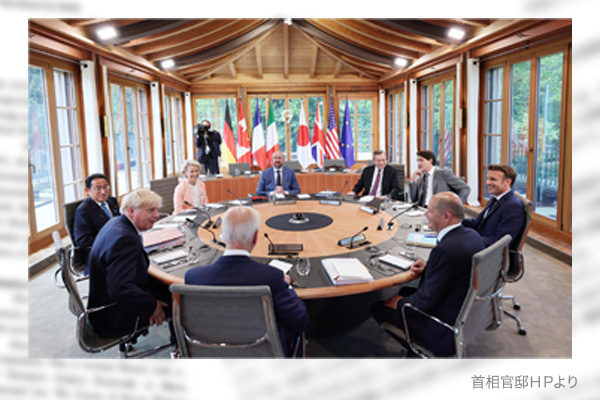Japanese Prime Minister Fumio Kishida attended an annual summit of the Group of Seven industrial democracies in Germany and a subsequent expanded summit of the North Atlantic Treaty Organization in Spain last week. While the biggest topic at the two summits was how to address Russia’s continuing war of aggression against Ukraine, G7 and NATO summit statements lacked teeth. They indicated a weak determination to constrain Chinese President Xi Jinping who is a close ally of Russian President Vladimir Putin and helping Russia earn foreign currency.
China effectively financing Russia’s war chest
The G7 Leaders’ Communique warned against Chinese actions in the East and South China Seas and the Taiwan Strait. The NATO’s Madrid Summit Declaration branded China as a “challenge” to the West. But autocratic China will remain unshaken by such abstract diplomatic rhetoric.
What China fears most are the West’s secondary sanctions. Chinese financial institutions and companies seem cautious of expanding transactions with Russia. Chinese exports to Russia between March and May declined 15% year on year. But don’t be deceived by the decline.
China’s imports from Russia in the three months soared 53% year on year, accelerating growth month by month. In May, they posted an 80% increase. China’s biggest import item from Russia is oil. In the three months, China’s oil imports from Russia posted a sharp increase of 72% to $15.1 billion. In China’s trade with Russia, imports’ excess over exports in the three months came to $15 billion. For your information, Russia’s defense spending was $48.4 billion in 2021 and total oil export was $110 billion. If the current pace continues, China’s annual import excess may reach $60 billion, indicating that China may effectively cover most of Russia’s defense spending that is growing due to the Ukraine war.
Additional sanctions on Russia in the G7 communique included the exploration of an oil price cap to ban imports of Russian oil at prices above the cap. It was designed to stop oil price hike due to gradual embargo of Russian oil by the United States, European Union and Japan. But China will not be affected by such measure as the country has already been importing Russian oil at prices that are nearly 20% lower than international market prices.
Beijing also supporting Russia’s ruble
The effects of the Japanese, U.S. and European financial sanctions on Russia have also been watered down by China’s support for Russia. As of late June, the Russian ruble was higher against the dollar and euro than levels before the aggression against Ukraine. A decline in Russian foreign exchange reserves from more than $600 billion before the aggression was limited to less than 10%. China has not only boosted imports from Russia but also kept Russian foreign exchange reserves worth some $100 billion to support the ruble’s values against other currencies.
The G7 communique ignored the abovementioned China-Russia close relationship while calling on China to press Russia to immediately withdraw its troops from Ukraine. Unless the G7 threatens to impose sanctions on China if China does not terminate cooperation with Russia, Xi will turn a deaf ear to such request. Did Prime Minister Kishida as a representative from Asia only listen to what American and European leaders said at the summit?
Hideo Tamura is a Planning Committee member at the Japan Institute for National Fundamentals and a columnist for the Sankei Shimbun newspaper.


